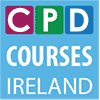These days employees undergo continuous evaluation and are judged on their competency and are appraised against their peer group. Workplace objectives are constantly changing due to the fluid nature of business. Takeovers, new management, new products, new technology, legislation and customer requirements are just some of the factors that have implications for the workforce.
To stay current, some businesses provide training opportunities to aid their staff. However, other organisations do not provide adequate learning prospects and what is on offer may not be aligned with the role of the employee or supply the skills they really need to do their job to their best ability. These days any employee who wishes to have a sustainable career must take charge of their own professional development.
Many surveys have discovered the correlation between longevity in employment and acquired knowledge through learning. Employees who participate in learning and training are more able to adapt to a rapidly changing work environment which gives them a useful edge in the job market. From an existing or potential employer point of view, individuals who display they are responsible about their development are more likely to be viewed as highly engaged and motivated. Demonstrating an openness to gaining knowledge suggests versatility and an active mind; all extremely attractive attributes to employers.
The first step in enhancing existing skills and job prospects are to look at the job role to identify what areas are found difficult and what needs to be improved upon. Looking at performance reviews, talking to HR departments, assessing whether key performance indicators are met all help towards formulating a plan for future continuous professional development. Chatting with colleagues, management and successful people in the chosen career can also be helpful.
Once areas of improvement are identified, there are many ways to begin. There may be someone willing to provide mentorship, which is ideal within the workplace, otherwise, self-study, reading, attending conferences and courses are the best way to progress with personal development activities. If for example, communication skills need improvement, then a self-study course or evening course in this area would be the place to start.
It is easy to lose sight of the job market when you are established in a busy job, but it is important to keep up to date with the changing needs and evaluate where you stand against the job specifications for your role. It is worth checking job adverts to see if you meet the brief. If not, it is time to look at any gaps in skills and take steps to rectify them. If for example, using specific IT skills keeps cropping up in job adverts, it may be time to book a course to stay current.
It goes without saying that all job roles require what are known as “soft skills”. All roles require interaction with people to some degree, and often knowledge of the job role alone is not enough if the skills to handle conflict and emotion in the work place and communicate clearly are not present.
People skills are what makes a talented employee an exceptional one who is more likely to be in line for promotion. Every role requires soft skills to some degree, so to climb the career ladder, developing these skills should be a priority. Training courses and practical sessions are a good way to accomplish these skills especially with the support of the workplace.
To find relevant CPD courses, the first step is sourcing a provider that offers the kind of skills update required. There are specialists who provide qualifications in various fields of employment & these will often be the first port of call, from there some online research will help find the best courses with the best teachers and learning outcomes. If professional mandatory CPD options are required it may be best to go to the websites of the governing bodies of the profession.
There are many training providers online, and it is vital to see if the course will result in any kind of certification or proof that the course was completed. This is important to add to a career portfolio. Cost is obviously a consideration so it is worth shopping around to find the best value bearing in mind that a more expensive course that avoids travel or is completely online may end up cheaper in the long run. When considering funding, it is always worth seeing if employers will contribute to or pay for the course.

